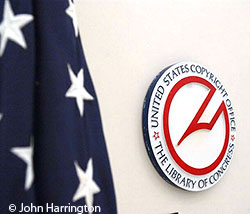Termination of ImageBrief Services
Today, March 1st, 2018, ImageBrief announced the "Termination of ImageBrief Services", telling contributors "...that after six years of connecting agencies, brands and creators, we will be closing down ImageBrief's photographer marketing services."
Amen.
For years, PhotoBusinessNews has been critical of the damage that ImageBrief has been doing to the assignment sector of the photographic industry. Feburary 13, 2015 we wrote "ImageBrief: A scourge on the photographic industry", and last year,
on May 28th, 2016 we published "500px, ImageBrief - The Crowdsourcing Scoundrels of the Internet".
So, it came as no surprise, and is good news for photographers in general, that ImageBrief announced their own demise.
If you contributed to ImageBrief, you have 7 days to retrieve your images, licenses, and other documents from the ImageBrief servers.
Here is the entire text of their email:
Please post your comments by clicking the link below. If you've got questions, please pose them in our Photo Business Forum Flickr Group Discussion Threads.
Amen.
For years, PhotoBusinessNews has been critical of the damage that ImageBrief has been doing to the assignment sector of the photographic industry. Feburary 13, 2015 we wrote "ImageBrief: A scourge on the photographic industry", and last year,
on May 28th, 2016 we published "500px, ImageBrief - The Crowdsourcing Scoundrels of the Internet".
So, it came as no surprise, and is good news for photographers in general, that ImageBrief announced their own demise.
If you contributed to ImageBrief, you have 7 days to retrieve your images, licenses, and other documents from the ImageBrief servers.
Here is the entire text of their email:
Dear {Contributor},
Today, we're announcing that after six years of connecting agencies, brands and creators, we will be closing down ImageBrief's photographer marketing services.
We're proud of the products and apps we built, but even more so, we're grateful for the community that enabled them to grow. More than 70,000 creators earned millions of dollars collaborating with 12,500+ global agencies and brands in 169 countries.
There has never been a better time for creators to thrive. Demand for content has increased, and the tools to create world-class creative are more accessible than ever.
Our talented team of engineers, designers, developers, and curators have worked tirelessly to make ImageBrief a success in a competitive and rapidly evolving landscape, and our immediate priority is to help you transition to other services to support your business.
In the coming days, our team will be in contact with you directly with detailed information about your specific account, license history, and services. Over the next week, we recommend logging into ImageBrief to download and retain your license history and related assets. Further details can be found in the FAQ's below.
We want to thank you for your participation and loyalty, and look forward to working with you in the coming weeks to ensure a smooth transition.
Sincerely,
Team ImageBrief
FAQ'SWhat will happen to images I have uploaded?ImageBrief does not distribute your images through third parties. All photos you have submitted to the site will be permanently removed from our servers within the next seven days.
How do I get copies of my licenses?For the next seven days, you will be able to login to www.imagebrief.com if you require additional copies of your licenses. Download your license and associated schedules. You are legally obliged to continue to adhere to all terms and agreements of your licensed images.
What will happen to my personal and credit card Information?We will permanently remove your personal information where it is no longer required, protecting your personal information from unauthorized access, disclosure, loss, misuse, and alteration. ImageBrief uses Stripe and does not store private credit card information.
What will happen to payments due to me?Over the next 90 days, our finance team will continue to manage accounts on behalf of contributors for images recently licensed. You will be contacted directly regarding the specific status of outstanding payments and paid within 30 days of receipt of the client's payment.
ImageRights ServicesIf you activated ImageRights and via the ImageBrief platform, images you have synced to ImageRights will remain in your ImageRights account.
You can use the email you used to signup with ImageBrief, but you'll need to reset your password to be able to login to ImageRights directly. Head to the login page at www.imagerights.com/login and select the 'Forgot Password' link. Cases will continue to be pursued while your account remains open. You can submit an account cancellation to ImageRights by emailing support@imagebrief.com.
(Comments, if any, after the Jump)
Please post your comments by clicking the link below. If you've got questions, please pose them in our Photo Business Forum Flickr Group Discussion Threads.
[More: Full Post and Comments]



